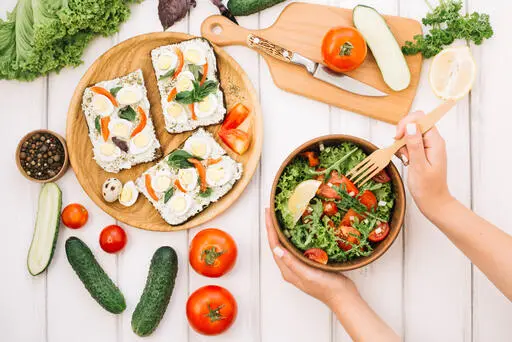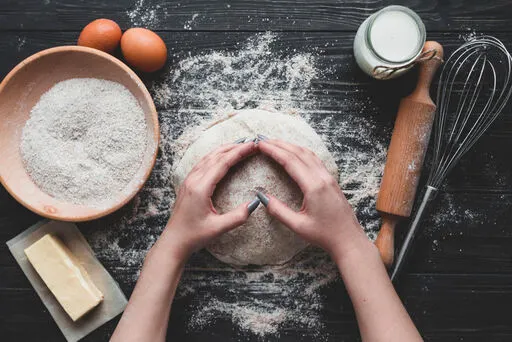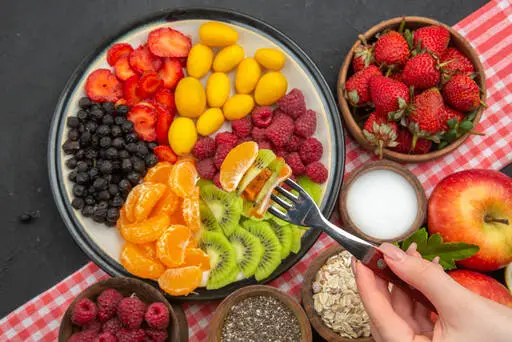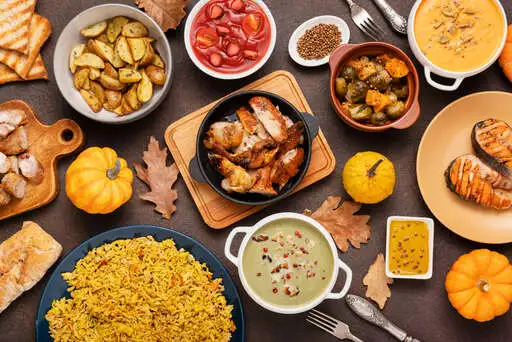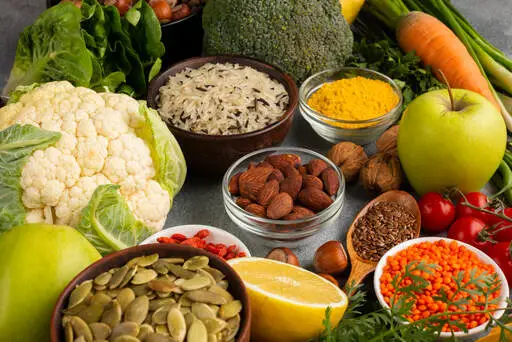Growing up, I struggled with digestive issues and low energy, until I discovered the ancient wisdom of Oriental medicine and its emphasis on food as a healing agent. By incorporating traditional ingredients like ginger, green tea, and fermented foods into my diet, I experienced a profound shift in my overall health. Now, I’m passionate about sharing this knowledge with others and empowering them to take control of their well-being through informed food choices. In this article, I’ll share my personal story and explore the incredible potential of food as medicine, guiding you on your own journey from good to best.
Table of Contents
1. My Journey with Food as Medicine
I still remember the day I stumbled upon the concept of food as medicine. I was struggling with digestive issues and low energy, and nothing seemed to be working. A friend introduced me to the principles of Oriental medicine, and I was intrigued. The idea that food could be a powerful tool for healing resonated deeply with me.
As I began to explore the world of food as medicine, I discovered a new language of nutrition. I learned about the yin and yang of flavors, the importance of seasonal eating, and the incredible potential of herbs and spices. I started experimenting with new ingredients and cooking techniques, and slowly but surely, my health began to transform.
Food became my medicine, and I felt empowered by the simple act of nourishing my body. I no longer relied on quick fixes or Band-Aid solutions; instead, I focused on feeding my body the nutrients it needed to thrive. And thrive it did – my energy levels soared, my digestion improved, and I felt a sense of vitality I had never known before.
Looking back, I realize that my journey with food as medicine was not just about physical healing; it was also a journey of self-discovery and empowerment. By taking control of my diet, I took control of my health, and that sense of agency has stayed with me to this day.
- Discovering the Power of Oriental Medicine
As I delved deeper into the world of Oriental medicine, I discovered a rich tapestry of wisdom and knowledge. I learned about the Five Elements, the concept of qi, and the importance of balance and harmony in the body. And at the heart of it all was food – the ultimate tool for healing and transformation. I was fascinated by the idea that food could be used to restore balance and promote well-being, and I was eager to learn more.
- How Food Transformed My Health
The first noticeable change was in my energy levels. Gone were the days of sluggishness and fatigue; instead, I felt a newfound vitality and enthusiasm for life. My digestion improved, and I no longer struggled with bloating and discomfort. And as I continued to nourish my body with wholesome foods, I noticed a profound shift in my mental clarity and focus. Food had become my medicine, and I was amazed by its transformative power.
As I continued on my journey, I discovered the incredible potential of herbs and spices to heal and nourish. Ginger, turmeric, and cinnamon became staples in my kitchen, and I marveled at their ability to reduce inflammation, boost immunity, and promote overall well-being. Food was no longer just fuel for my body; it was a powerful tool for healing and transformation.

With each passing day, I felt more connected to my body and more attuned to its needs. I listened to its whispers, and I responded with nourishing foods and self-care rituals. And as I did, I felt a deep sense of harmony and balance – a sense that food was indeed my medicine, and that I had the power to heal and transform my life.
2. The Science Behind Food as Medicine
Food as medicine is not just a quaint concept; it’s a scientifically-backed reality. Research has shown that the food we eat has a profound impact on our bodies, influencing everything from our gut health to our mental well-being. By choosing the right foods, we can actually help our bodies heal and thrive.
At the heart of food as medicine is the gut-brain connection. Our gut and brain are intimately linked, with the gut producing neurotransmitters and hormones that influence our mood, energy, and overall health. By nourishing our gut with wholesome foods, we can actually improve our mental clarity, reduce stress, and boost our mood.
Food is not just fuel; it’s information. Every bite we take sends a message to our cells, telling them how to function, grow, and heal. By choosing foods rich in nutrients and compounds, we can actually promote healing and transformation in our bodies. From the antioxidants in green tea to the anti-inflammatory properties of turmeric, food has the power to heal and transform our lives.
As I’ve learned more about the science behind food as medicine, I’ve become even more passionate about nourishing my body with wholesome foods. I’ve seen firsthand the transformative power of food, and I know that it has the potential to change lives.
- Understanding the Gut-Brain Connection
The gut-brain connection is a fascinating phenomenon that has captivated scientists and health enthusiasts alike. Research has shown that our gut produces neurotransmitters like serotonin and dopamine, which influence our mood, energy, and overall well-being. By nourishing our gut with wholesome foods, we can actually improve our mental clarity, reduce stress, and boost our mood.
Food plays a critical role in maintaining a healthy gut-brain connection. By choosing foods rich in fiber, probiotics, and antioxidants, we can promote a balanced gut microbiome and support the health of our brain. And it’s not just about mental health; a healthy gut-brain connection can also boost our immune system, reduce inflammation, and even improve our digestion.
- Nutrients and Compounds that Promote Healing
Green tea is a powerhouse of nutrients and compounds that promote healing and transformation. Rich in antioxidants like catechins, green tea has been shown to reduce inflammation, boost immunity, and even improve our mental clarity. And it’s not just green tea; foods like turmeric, ginger, and cinnamon are also rich in compounds that promote healing and transformation.
Food is a rich source of nutrients and compounds that promote healing and transformation. From the omega-3 fatty acids in salmon to the antioxidants in berries, every bite we take has the potential to nourish and heal our bodies. By choosing foods rich in these nutrients and compounds, we can actually promote healing and transformation in our lives.
3. Incorporating Healing Foods into Your Diet
Incorporating healing foods into your diet is easier than you think! Start by adding small amounts of ginger, turmeric, and cinnamon to your meals. These spices are packed with anti-inflammatory properties and can help reduce pain and inflammation. You can also try adding fermented foods like kimchi, sauerkraut, and kefir to your diet. These foods are rich in probiotics and can help support gut health.
Food is medicine, and by choosing the right foods, you can actually promote healing and transformation in your body. Try incorporating green tea into your daily routine – it’s packed with antioxidants and can help boost energy and mental clarity. And don’t forget about the power of fermented foods! Foods like kimchi and sauerkraut are rich in probiotics and can help support gut health.
By incorporating healing foods into your diet, you can actually reduce your risk of chronic diseases like heart disease, diabetes, and even cancer. Food has the power to heal, and by choosing the right foods, you can take control of your health and well-being.
Remember, it’s all about balance and variety. Don’t be afraid to try new foods and spices – your body will thank you!
- Ginger: The Anti-Inflammatory Superfood
Ginger is a powerful anti-inflammatory food that has been used for centuries in traditional medicine. It contains compounds like gingerol and shogaol, which have potent anti-inflammatory properties. By incorporating ginger into your diet, you can actually reduce pain and inflammation in your body. Try adding fresh ginger to your stir-fries, soups, and teas – it’s a simple and delicious way to promote healing and transformation.
Ginger is also a natural digestive aid and can help reduce nausea and bloating. It’s a great addition to your diet, especially during times of stress or illness. And the best part? It’s easy to incorporate into your diet – try adding it to your favorite recipes or drinks for a boost of flavor and nutrition.
- Green Tea: Boosting Antioxidants and Energy
Green tea is a powerful antioxidant food that has been shown to reduce inflammation, boost energy, and even improve mental clarity. It contains compounds like catechins, which have potent antioxidant properties and can help protect your body from damage. By incorporating green tea into your diet, you can actually promote healing and transformation in your body.
Green tea is also a natural energy booster and can help reduce fatigue and stress. It’s a great alternative to coffee and can be enjoyed hot or cold. Try adding it to your daily routine for a boost of energy and nutrition.
- Fermented Foods: Unlocking Probiotics and Nutrients
Fermented foods like kimchi, sauerkraut, and kefir are rich in probiotics and can help support gut health. They contain live cultures that can help populate your gut with good bacteria, reducing inflammation and improving digestion. By incorporating fermented foods into your diet, you can actually promote healing and transformation in your body.
Fermented foods are also rich in nutrients like vitamins and minerals, making them a great addition to your diet. Try adding them to your meals or snacks for a boost of flavor and nutrition. And remember, it’s all about balance and variety – don’t be afraid to try new foods and spices!
4. Empowering Your Health through Informed Food Choices
By making informed food choices, you can take control of your health and well-being. Food has the power to heal, and by choosing the right foods, you can actually promote healing and transformation in your body. It’s all about being mindful of what you put into your body and making conscious choices that support your health.
Every time you sit down to eat, you have the power to choose food that nourishes and heals your body. By choosing whole, nutrient-dense foods, you can provide your body with the tools it needs to thrive. And it’s not just about physical health – food can also affect your mental and emotional well-being.
By taking control of your food choices, you can take control of your health. It’s a powerful feeling, knowing that you have the ability to make choices that support your well-being. And it’s not just about you – by making informed food choices, you can also set a good example for your loved ones and help them on their own journey to health and wellness.
Remember, food is medicine, and by choosing the right foods, you can actually promote healing and transformation in your body. So next time you sit down to eat, remember the power of food and make choices that support your health and well-being.
- Reading Labels and Avoiding Harmful Ingredients
When it comes to making informed food choices, reading labels is key. By taking a closer look at what’s in your food, you can avoid harmful ingredients and make choices that support your health. It’s all about being mindful of what you put into your body and making conscious choices that support your well-being.
Food labels can be tricky, but by knowing what to look for, you can make informed choices that support your health. Look for labels that say “whole” or “nutrient-dense” – these foods are packed with the nutrients your body needs to thrive. And avoid foods with labels that say “processed” or “artificial” – these foods can be harmful to your health.
By reading labels and avoiding harmful ingredients, you can take control of your health and well-being. It’s a simple step, but it can make a big difference in your overall health.
- Meal Planning and Preparing Nourishing Meals
Meal planning and preparation are key to making informed food choices. By planning your meals in advance, you can ensure that you’re getting the nutrients your body needs to thrive. And by preparing nourishing meals, you can provide your body with the tools it needs to heal and transform.
Meal planning doesn’t have to be complicated – it’s as simple as taking a few minutes each week to plan out your meals. And preparation can be as easy as chopping up some veggies and throwing them in a stir-fry. By taking the time to plan and prepare nourishing meals, you can take control of your health and well-being.
Remember, food is medicine, and by choosing the right foods, you can actually promote healing and transformation in your body. So next time you sit down to eat, remember the power of food and make choices that support your health and well-being.
Join the conversation! Let us know how food has impacted your health and well-being in the comments section below.



